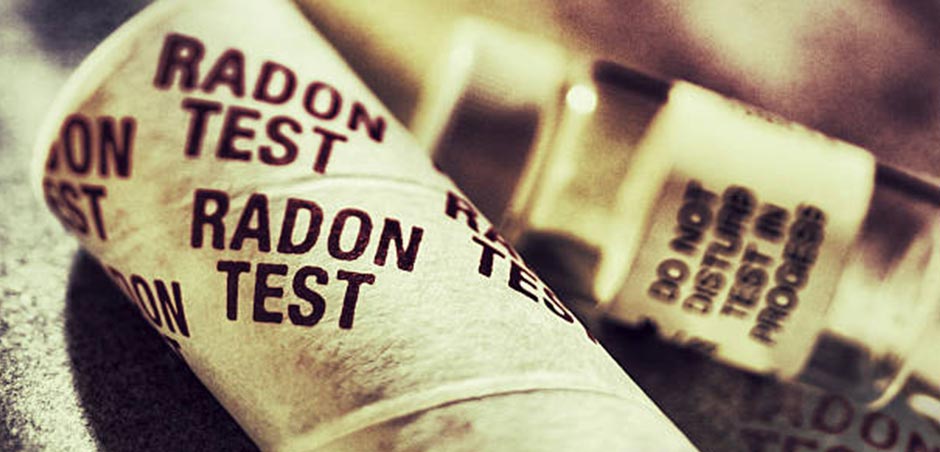When managing a commercial property, certain risks may go unnoticed, with issues like fire safety and structural integrity often taking center stage. However, there's an invisible threat lurking in many commercial buildings: radon gas. While this dangerous gas may not be as immediately obvious as other safety hazards, it poses significant health risks to building occupants and business owners alike. This article highlights why commercial radon testing should be an essential part of your property inspection checklist.
What is Radon, and Why Should You Be Concerned?
Radon is a colorless, odorless, and tasteless gas that forms naturally when uranium in soil and rocks decays. Although radon itself is harmless in the open air, it can accumulate in confined spaces like commercial buildings. If allowed to build up indoors, radon can reach dangerous levels, significantly affecting indoor air quality and posing serious health risks to anyone who spends time in the building.
The Health Risks of Radon Exposure
The most severe risk associated with radon exposure is its potential to cause lung cancer. In fact, radon is the second leading cause of lung cancer in the U.S., after smoking. Prolonged exposure to high radon levels increases the chances of developing lung cancer, which can have a devastating impact on the health and well-being of your employees and customers. For business owners, the consequences go beyond health concerns—failure to address radon exposure can lead to legal liability and damage to your company’s reputation.
Legal and Regulatory Implications of Radon Testing
Over the years, regulations surrounding radon testing in commercial buildings have become more stringent as awareness of the health risks has increased. Business owners and property managers need to be aware of the evolving legal landscape, which includes:
- Government Regulations: Various government agencies have set guidelines and regulations for radon testing in commercial properties. These measures are in place to protect public health by establishing radon exposure limits and mandating regular inspections for specific types of commercial buildings.
- Building Codes: Construction codes often include guidelines to prevent radon infiltration in commercial buildings. Property owners must adhere to these codes to obtain permits and ensure the safety of their tenants and employees.
- Workplace Safety Regulations: Employers are legally required to assess and mitigate radon risks to protect their employees’ health. Failure to comply with these regulations can lead to fines and legal consequences.
- Disclosure Laws: In some regions, property owners must disclose radon risks to potential buyers or tenants. Non-disclosure can lead to legal disputes and financial penalties, making it crucial to include radon testing in any property transaction.
- Liability Issues: Property owners are responsible for maintaining a healthy environment for their occupants. Failing to address radon hazards can result in liability for health issues or injuries caused by radon exposure.
Radon Testing and Property Transactions
Radon testing is often a vital component of property transactions. Both buyers and sellers must be aware of the risks:
- Due Diligence: Buyers often request radon test reports as part of the due diligence process. Having a clear understanding of radon levels can help them make informed decisions and negotiate terms.
- Risk Management for Sellers: Sellers who proactively test for radon and mitigate any problems can reduce the risk of legal disputes, protect their property’s value, and ensure smooth transactions.
- Insurance Considerations: Some insurance companies require proof of radon testing and mitigation before offering coverage. Ensuring that radon risks are addressed is vital for maintaining insurance protection and avoiding gaps in coverage.
Why Commercial Radon Testing is Crucial
- Protecting Health and Safety
Radon exposure is a serious health risk that can lead to lung cancer, particularly with prolonged exposure. Commercial radon testing ensures that your building remains safe for employees, customers, and visitors. Regular testing helps identify elevated radon levels early, allowing for timely mitigation measures.
- Regulatory Compliance and Risk Management
With growing regulations surrounding radon testing in commercial buildings, noncompliance can lead to fines and reputational damage. Regular testing demonstrates a commitment to legal compliance and helps minimize the risk of costly penalties or lawsuits.
- Preserving Property Value
Properties that have been tested for radon and have undergone necessary mitigation are more appealing to tenants and potential buyers. By addressing radon risks, property owners can enhance the value of their buildings, reduce vacancies, and maintain or increase rental income.
- Employee Satisfaction and Productivity
A healthy workplace not only protects employees but can also boost morale and productivity. Employees are more likely to feel valued when they see their employer prioritizing their health and safety, resulting in improved work performance and employee satisfaction.
- Sustainable Property Management
Radon testing is an essential part of long-term property management and sustainability. By addressing radon risks early, property owners can protect their investment, avoid costly legal disputes, and contribute to a healthier and safer community.
Conclusion
Commercial radon testing is not just a regulatory requirement; it’s a vital measure to protect the health and safety of everyone in your building. By incorporating radon testing into your property management routine, you’re ensuring that your business remains compliant, safeguarding your investment, and promoting a safe and healthy environment for your tenants, employees, and customers.
Don’t wait for a radon-related issue to arise. Take action today by scheduling a commercial radon test for your property. Your commitment to radon safety will not only protect your business but also contribute to the well-being of your community.
For reliable radon testing services, trust Protec Inspections. Our team of experts specializes in detecting and mitigating radon risks in commercial properties across Maryland, Pennsylvania, Washington DC, and Virginia. Contact us today to schedule your radon inspection and safeguard your property from this hidden threat.





Comments